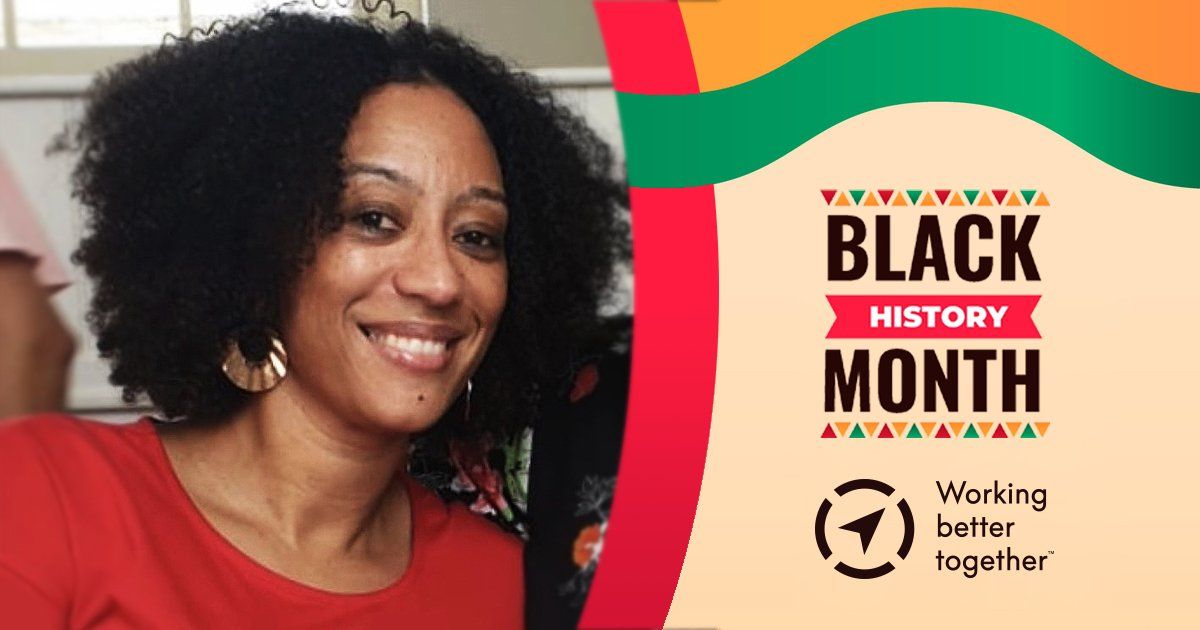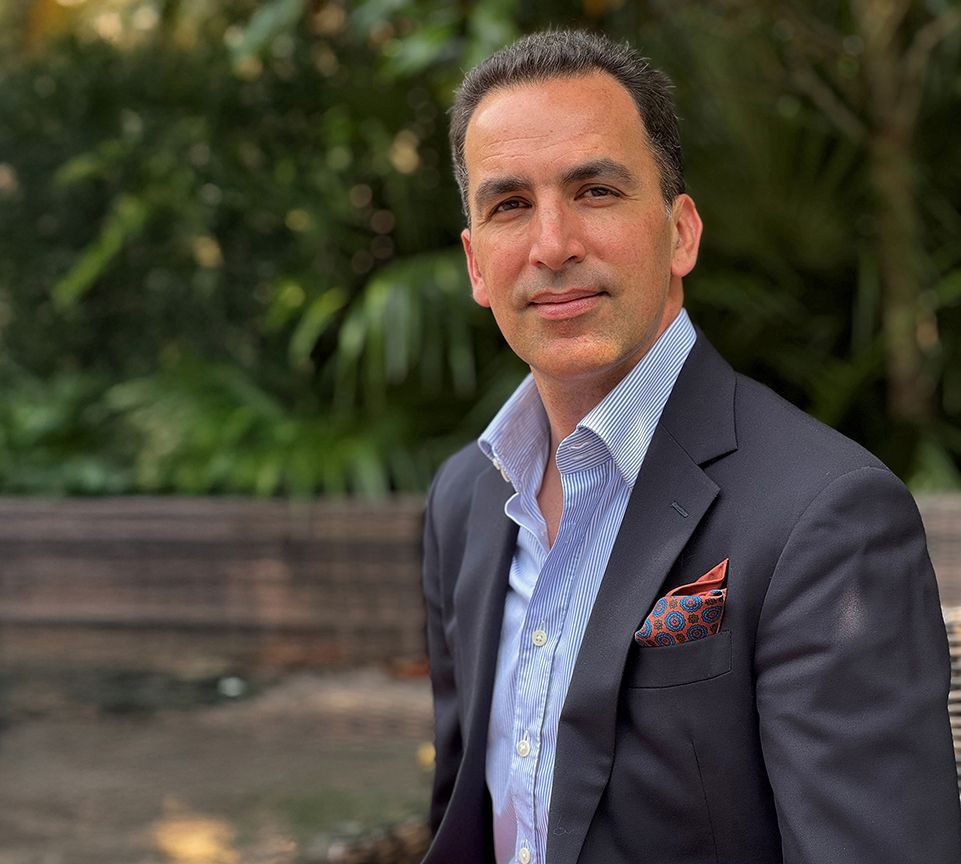Black History Month: in conversation with Sam Peterson
As a proudly diverse organisation, we celebrated Black History Month by talking to members of our team about their heritage, their history and their lived experiences. One of the conversations we had was with Sam Peterson, Managing Director of TISSL, who shares her story with us.
Thanks for having a chat with us today, Sam. What’s your background?
I was born and raised in Zimbabwe, and lived there until I was 19 years old. Zimbabwe’s a beautiful place – the place I call home. It was an amazing place to grow up with sunshine 365 days a year set against the backdrop of the beautiful African countryside. I have very happy memories of my childhood. Thinking back, it reminds me of something out of an Enid Blyton novel! Zimbabwe was a British colony and as a result we benefitted from a solid infrastructure and great school system modelled after British schools.
And what about school?
My sister and I boarded from the age of eight. We were the only non-white pupils in the school, but the school embraced us – it celebrated our differences and initially everyone seemed more curious than racist. However, my innocence was short lived.
Why do you say that?
About a year after we had been at the school, a black girl joined and she had a darker skin tone and wasn’t accepted. The white girls at the school didn’t want to share a dorm with her. This was one of my earliest experiences and realisation of racism. I realised that I was more ‘palatable’ as a lighter-skinned black person.
What is your heritage?
I am half black African, a quarter Pakistani and a quarter is a Scandi mix. My Great Grandfather, a Khan, travelled to Zimbabwe with his two brothers to find their fortune and build a life.
You sound very proud of your heritage.
I am proud. I embrace all parts of my heritage and celebrate it. I love that I am from all these rich places, and it comes through me in my interests, my energy, my cooking and love of travel.
Tell us about your cooking…
Yes, I love cooking all types of food, all connected to my heritage and ancestry. I remember my first job in the UK at Unison, where we would cook and take food in for our colleagues and I would take curry and samosas. But I love all food and I embrace all cultures – I’m quite happy and just as comfortable having high tea at the Ritz.
What was it like working for Unison?
Unison was a wonderful place to work. The nature of the organisation means it attracted a certain type of person, a certain mindset, largely open-minded people who embraced diversity. This made for a ‘soft landing’ for someone fresh out of Africa at just 19 years old. I fitted in well and loved it.
How did you feel coming to England at such a young age? Did it change your view of yourself?
Actually, I began to lean more into my blackness when I got to England, I became more proud of my African heritage. I lived initially in the East End of London, which was a huge mix of cultures so the fusion of the East End of London probably influenced that. I became more aware, more proud and even more embracing in a way.

Who are your heroes, Sam?
My paternal grandmother is one, she’s 94 years old and still lives on her farm in rural Zimbabwe. She doesn’t read or write as she never went to school, but she is one of the most intelligent people I know – she is mindful and so wise. She is my go-to when I need guidance and often responds to life’s problems in such a simple and clear way.
Nelson Mandela, of course, is another – he is a true hero. He shook the hand of his jailor on leaving his prison cell after serving 27 years and preached only love, forgiveness and acceptance, inspiring beyond comprehension. It is these types of people that I look up to. People who pull other people up, people who are in service to others, who help and assist and elevate and whose greatness impacts other people.
So how about you now Sam? Tell us about your family.
I have been married to my husband for 25 years. He’s also from Zimbabwe – we knew each other from our early teens. We have two amazing teenage sons who keep us on our toes and make every day interesting for us.
Where were your boys born?
They were born in Milton Keynes. This is where we settled and we’re grateful that it’s such a multicultural place with lots of diversity and positivity. Both of our Mums live within 15 minutes of us, and they’re in and out of our home so our family ties are strong, it’s something I am happy our boys get to share in.
Have you ever experienced any racism there?
Not so much in Milton Keynes, but when I was expecting our first son we lived in a village on the outskirts of Milton Keynes. I remember attending an anti-natal class, and of the 30 mums-to-be all were white except for myself and an Indian lady. They were all very friendly and open until one day after our children were born. I bumped into a couple of them in a local supermarket, and they didn’t acknowledge me at all, they completely blanked me. This is covert racism, not the ugly vicious kind, this is quiet and underhand, but the feeling of exclusion is felt just as loudly.
How did you feel?
I went straight home and told my husband that we had to move to Milton Keynes, we could not stay here as I did not want my son to ever feel what I just had. It was a big decision, but I had a duty to my son and my heritage. I had a duty to myself and to my family not to put ourselves in a situation where we were not happy or accepted.
You have a great deal of confidence Sam; you know who you are. Where does that come from?
It comes from my childhood, my parents, my grandparents, and my wider family. We have a saying in Africa; “it takes a village to raise a child”. This support system gives you the strength and confidence that you need, the strength to remain authentic and true. We’re descended from Kings and Warriors, from beautiful people, from strong people, from a proud people. Nobody should be able to tell you differently.
So Sam, what does Black History Month mean to you?
I love it. It’s a chance to celebrate all of the wonderful richness of our culture, all the brilliant black people that exist and have existed before us, and those that have paved the way so that we can be great today. The leaders, the activists, the Kings, and Queens.
Did you actively celebrate in any way?
Yes, we did. We used the month, as a family, to remind ourselves of who we are and to remember incredible people such as Rosa Parks and Steve Biko. We sat with the boys and watched films that are relevant to black history, such as Black Panther or Blood Diamond, and we discussed what they mean and what they are teaching us. We went to see the Woman King, too.
Black, mixed race, bi-racial, of colour, coloured: these are some of the terms used to describe black people. How do you feel about them?
Coloured is a no for me as it comes from the Slavery days on the plantation and using the word only perpetuates that ugly history. I don’t consider myself bi-racial or mixed-race. I am a black person of mixed heritage, and I love it.


